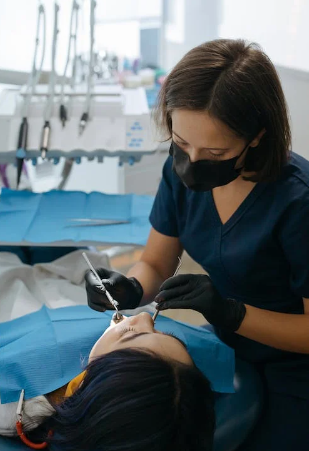HEALTH
5 Crucial Things to Do Before the Dental Implant Procedure

One thing that will surely change when you lose some teeth is your eating habits. You will no longer enjoy your favorite meals as you used to when you had a complete dental formula. Also, you will feel embarrassed in front of people while trying to smile broadly with gaps in your teeth. If you lose your teeth due to periodontal disease or injuries, you do not have to worry anymore since Phillip Chien DDS has a remedy that best suits you. He provides dental implants to patients with missing teeth. If you are ready for dental implants, here are the crucial things to do before the procedure.
Follow the Prescription on Your Medication
Sometimes while anticipating the dental implants, your dentist may require you to take some medications. Therefore, you should take those medicines as instructed by your health provider. Also, it would help if you heeded the guidelines when your dentists recommend stopping some medications, such as aspirin which would interfere with the healing process.
Organize a Ride
Even though the dental implant is not a major surgical procedure, it may interfere with your capacity to drive yourself home after the procedure. Therefore, you should make travel arrangements before the appointment day. Look for someone you can trust who can drive you to and from the hospital. Select the person who will not forsake you when you have not fully recovered from the aesthetic medications after the procedure.
Maintain a Good Oral Hygiene
Keeping your mouth in good condition is crucial for your overall health. In the readiness for the dental implant procedure, ensure that you do not lose the habit of brushing your teeth at least twice daily. Also, if you have never been flossing your teeth, this is the best time to start this exercise. Good oral health before the procedure helps increase the new implants’ lifespan and wellness.
Stop Smoking
Smoking is one of the risk factors for many health complications in the body. Notably, the nicotine components usually hinder blood flow in the blood vessels, which may decelerate the healing process. Therefore, if you are a smoker, it would be best to quit this habit weeks before the dental implant to enhance the procedure’s success.
Plan for the Soft Meals
You should be ready for a slight change in diet after the dental implant procedure. In most cases, the dentist recommends the patients eat soft meals after the procedure. Therefore, you should purchase or make soft foods such as pasta which you will chew easily after your teeth replacement. Process fruits into juice to benefit from vitamins without having to bite the fruits.
Injuries and gum disorders have left many people with gaps in their dental formula, which interferes with their eating habits. However, I have great news if you struggle with missing teeth while eating. Phillip Chien, DDS, and his team of specialists at Sunshine Dental, Inc, provides reliable oral care, including permanent tooth replacement for patients with tooth loss. Book an appointment online and visit the facility today to live a quality life again.
Umar Nisar was born and raised in the busy city of Abbottabad. As a journalist, Umar Nisar has contributed to many online publications including PAK Today and the Huffing Post. In regards to academics, Umar Nisar earned a degree in business from the Abbottabad UST, Havelian. Umar Nisar follows the money and covers all aspects of emerging tech here at The Hear Up.
Thanks










